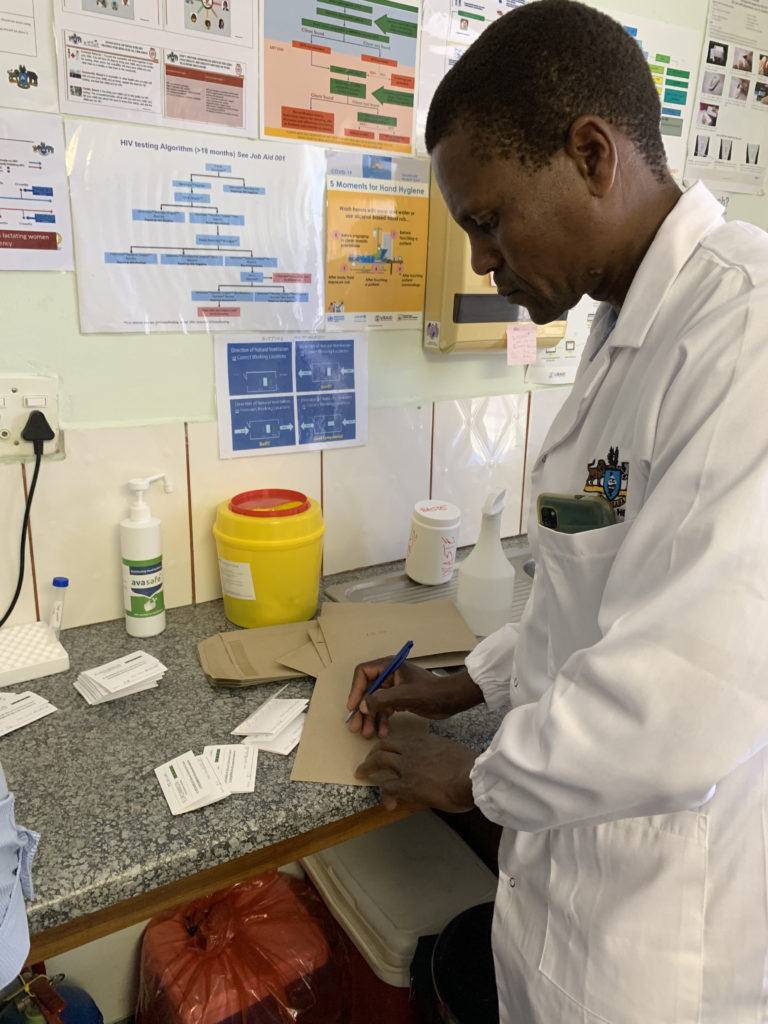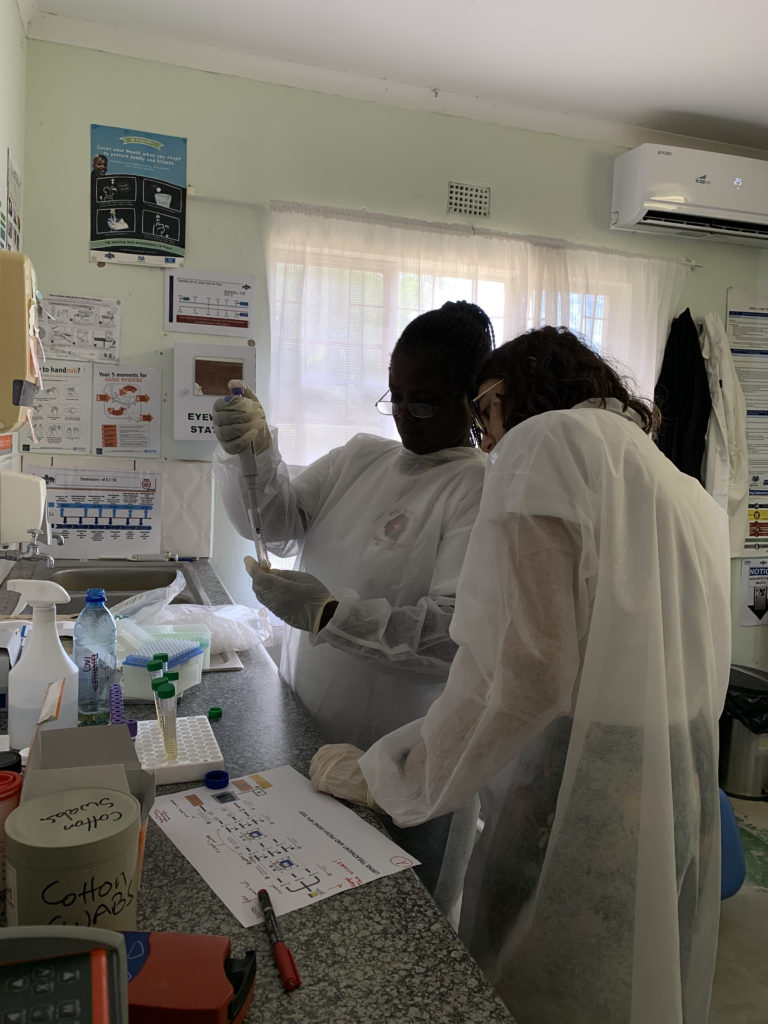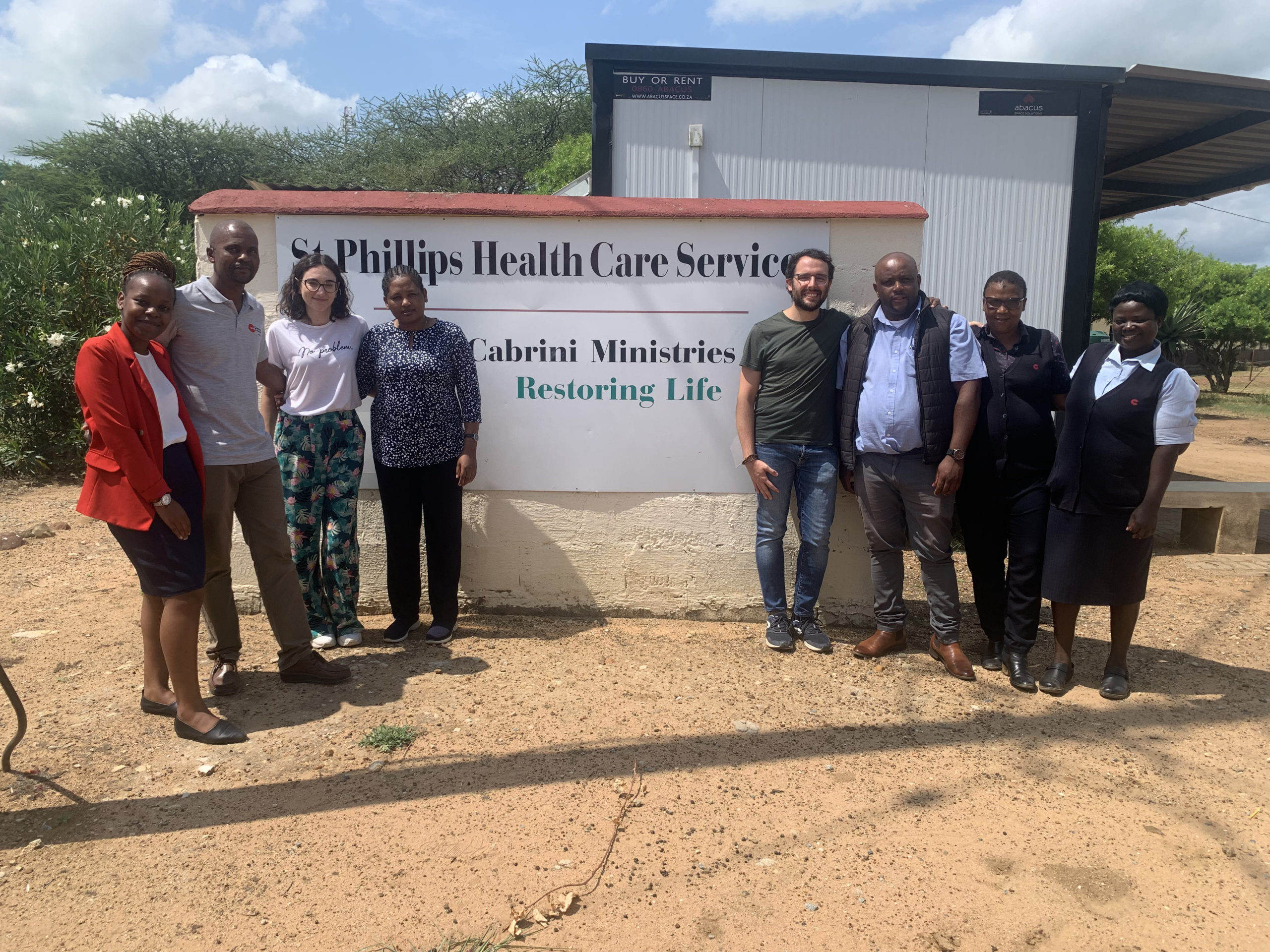Two years ago, two research groups at the University of Milan led by Prof. Elisabetta Tanzi and Prof. Mario Raviglione began preparing for a collaborative research project with the Missionary Sisters of the Sacred Heart of Jesus and Cabrini Ministries eSwatini. The concept was to trial a non-invasive screening method to encourage women to test for HPV (Human Papillomavirus) which causes cervical cancer. Cervical cancer is the fourth common cause of cancer among women worldwide, and the leading cause of cancer deaths among women in eSwatini. Particularly rural women in eSwatini are made even more vulnerable by lack of access to basic healthcare, high gender-based violence rates, and patriarchal cultural norms. Through a comprehensive and integrated approach to caring for the community, Cabrini Ministries in eSwatini has earned the trust of the community and is reaching the most vulnerable women within their catchment area with essential services. Cabrini had also made great strides in helping the community to accept the need for cervical cancer testing, an otherwise taboo subject. It made sense for the University of Milan to seek a partnership with Cabrini Ministries eSwatini to facilitate research that could vastly improve the lives of rural women in developing countries.
The research project entails running a cervical cancer screening campaign at Cabrini’s St. Philip’s Clinic, implementing testing methods applicable for low resource settings, and followed by referrals and counseling. This campaign will be co-managed by Cabrinian staff and the University of Milan, with the support of the Ministerial authorities of the Kingdom of eSwatini. Generally, the lack of resources in developing countries impedes the implementation of prevention activities and HPV tests based on rapid molecular technology (known colloquially as ‘pap tests’), because they are too expensive, and women find them too invasive and culturally inappropriate. Evidence from a previous research study in Italy by the University of Milan’s shows success in the non-invasive and cheaper method, an HPV-test based on a simple urine collection, and checked by a fast, inexpensive, and ultra-modern technological means. This is an example of what could be applied in low- and medium-income settings in the future.
After much preparation, the research project was officially launched in January 2023, appropriately in the month that the World Health Organization has dedicated as ‘Cervical Cancer Awareness Month’. This project is a collaboration between, the University of Milan, Cabrini Ministries eSwatini, Cepheid, the Missionary Sisters of the Sacred Heart (Generalate), and Cabrini Health Australia, and highlights the value and importance of partnership, both within and external to our Cabrini World, which is responding to a call of our Chapter Mandates.
Prof. Mario Raviglione is a member of the MSCs International Health Commission (IHC) and introduced this project to Cabrini through the IHC. He has a long history of journeying with MSCs from the time he was a medical trainee at Cabrini Medical Center in the 1980’s and volunteering at Cabrini Ministries eSwatini under Sr. Raphael! Prof. Raviglione’s articulates the vision for this project as “The hope is to motivate governments of countries heavily affected by this disease to introduce modern prevention methods, including vaccination campaigns, that to date are not available in most high-incidence countries. This could contribute to saving millions of human lives”.
Essentially the long-term mission of the project is to provide an evidence base for a replicable model which significantly improves prevention and treatment of cervical cancer in developing contexts. As the Cabrinian community, we are grateful and proud for all the work in getting this project to ‘launch’ phase, and we are excited to see what happens into the future. This project has the potential to impact not only the communities served by Cabrini Ministries eSwatini, but also the lives of thousands of young women and girls in developing countries around the world.



